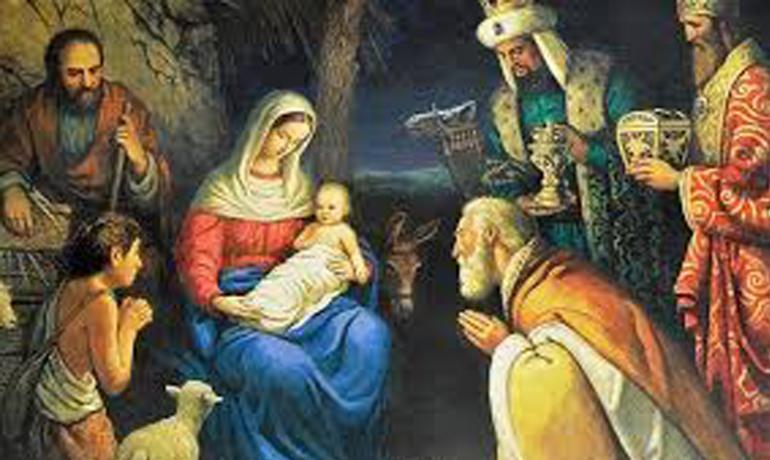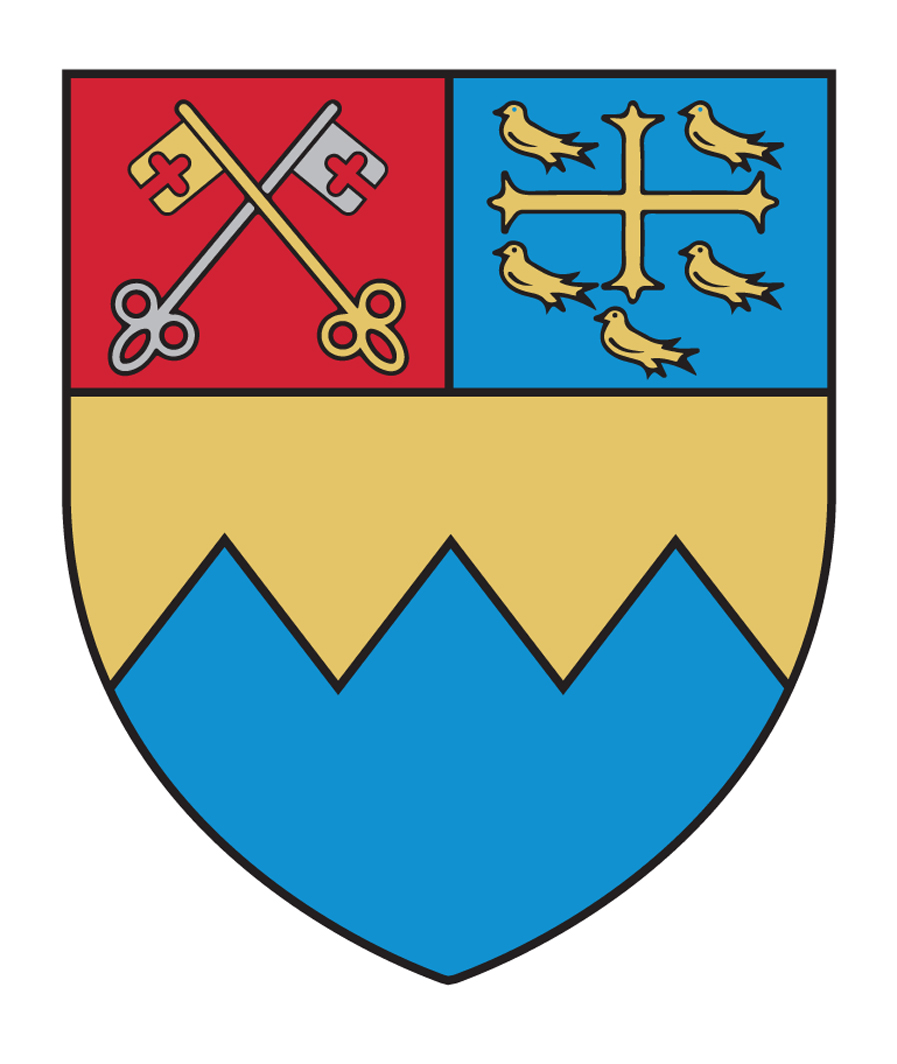
Please see below Fr Gabriel's Homily from Christmas Night 2019.
Thank you to all of you for joining us for this Mass of the night of Christmas. On behalf of Fr Abbot and all the community I assure you of our prayers for you all, your families and your friends and this evening for a joyful and holy celebration of the birth of Christ, the Holy Child who is indeed born for us this night to save us and to unite us to himself.
Tonight’s first reading from the prophet Isaiah, coming from the 8th century before Christ, looks to a great light, which shines upon a people that walks in darkness. It is a great and clear light because it shines out in a deep and frightening darkness. For us who celebrate tonight in the darkness of the night the birth of Christ, he is the great light. We hardly need to dwell upon the deep and frightening darkness, because it surrounds us still, as individuals, as a Church, as a nation, as a world.
Christ is not yet the light that scatters all the darkness, as this will only be at the end of this fragile time of ours, but for the moment, for the generations which have come and gone since his birth, he is still a great light which shines out in the darkness, giving us a light that suffices to show us the path that we walk in the dark. It is the light and joy of a new born child, full of hope. We all understand and respond to this light, joy and hope.
And yet, we may have within us a colder and darker voice, a voice of doubt, of scepticism, of cynicism even. It corrodes the hope, the promise of the light, of new beginnings, of the fulfilment of hope. It may be that our own birth was once a sign of hope and joy and we may feel that it has not turned out as hoped, the pure light is stained. The darkness threatens to engulf. According to the cynical voice the history of man is that he is born, he suffers, he dies. This is the story, it is our story. It is the fear we may experience in seeing a loved one die, that the story ends badly and sadly.
But then the child who is born this night, whose fragile life and light lies before us, in vulnerable love, will encompass the suffering and the death that lies threatening in the dark. Indeed he will undergo it voluntarily ‘for us’. These were the closing words of the second reading from St Paul’s letter to Titus: ‘He sacrificed himself for us in order to set us free from all wickedness and to purify a people so that it could be his very own’.
In the gospel for Christmas night from St Luke, there is a hint of the sacrifice in the fact that the world even at the beginning rejects him: there is no room in the inn. He must be born outside in the dark. But the angel who greets the shepherds, nonetheless speaks of him as the Saviour Christ the Lord. With the angel there comes a light, which is the glory of God. So the birth, outside the inn, in the dark and the sacrificial death upon the cross are alike the narrow gateway that leads to salvation, new life. Narrow is this way, but it leads to salvation; fragile is the light in the darkness, but the sacrifice of suffering and death will become the narrow way to the new life. It becomes the resurrection, the way into the new life.
We too go by this way in hope: we are born, we suffer yes, we die indeed, but the faith and the hope of the Church is that we rise again in him. He includes us in this way of his and we do not spectate but rather participate. This is done in a most strange way. The child is taken, according to tonight’s gospel and he is laid in a manger, the animals’ feeding trough, outside the inn, in the dark. It is the hint that in his birth, in his sacrifice, in his resurrection, all of which are present here with us in this our celebration of the Eucharist, he becomes our food, the food in the feeding trough, our sustenance for the journey through the night, the body and blood that we receive in this Christ’s mass.
It is an exchange, his body to become our body, to make us his body, a uniting and a mutual indwelling. When Paul wrote to Titus of the ‘appearing of the glory of our great God and saviour Christ Jesus’ he points to something both cosmic, at the end of our fragile time, and yet also within our present, of something very personal and intimate, as intimate and as holy as a marriage bed, which is ministered to us in holy communion, making us not spectators but participants or rather better still communicants. In the Prayer over the gifts of this Mass, we will pray thus that: ‘through this most holy exchange we may be found in the likeness of Christ, in whom our nature is united to you’.
